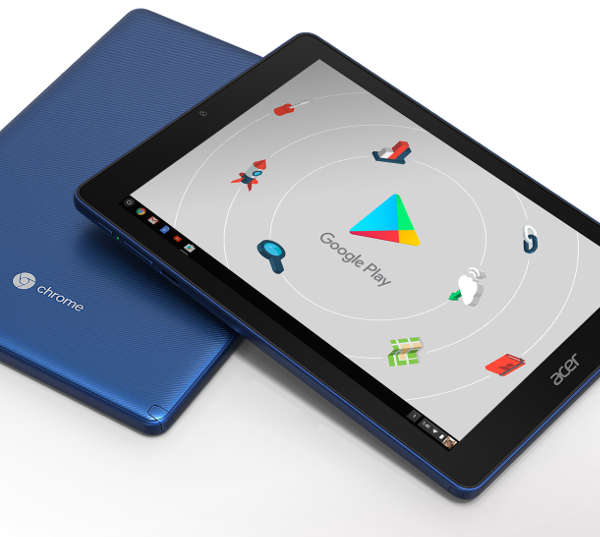| Linux Apps On Chromebooks |
| Written by Mike James | |||
| Thursday, 26 April 2018 | |||
|
Sometimes you have got to think that we are working in the maddest of subjects. Chromebooks are about to get the ability to run Linux apps. The fact that ChromeOS is Linux is the part that is mad.
Don't you sometimes wish that you could throw the entire development stack out and start again. Yes we all do, but we all also know that if we did no-one would follow us. The reasons we use the technology we do has very little to do with good engineering and nothing at all to do with good design. We sort of struggle on from where we are to get a little further down the road. It isn't even that we know what our end point is, it is more that we inch along to a slightly better place. Viewed from 1000 feet our progress must look a lot like a random walk. What has brought all this on is the news that Google, which has already introduced Android apps on Chromebook, has also been working on ways to run Linux apps on ChromeOS. This isn't yet official, but there are enough indications and even early trial versions to know that it is almost certainly going to be a splash at the soon-to-happen Google I/O. ChomeOS is a Linux kernel with Chrome acting as its user interface. The idea is that you just need a browser and everything else can be delivered over the web. This isn't a new idea, but in the past attempts to make it work have mostly failed. FirefoxOS might have fared better if it had targeted notebooks rather than phones. Using Chrome the apps are web apps and Google is pushing the idea of Progressive Web Apps in particular. The advantage of the ChromeOS approach is that you only need fairly low power hardware, not too much memory and, as most things are stored in the cloud, small hard disks. Hence Chromebooks are, or should be, cheap. There is also the huge advantage that apps aren't installed or, what parts of them are, are easy to keep up-to-date without much management. This makes them ideal for school and educational use and indeed they are the leading hardware in this environment. As long as you can live within the limitations of working with a browser as your UI and have a good network connection, then who could want more? Well, the answer is, whether users wanted more or not, they seem to be having it. Google first announced that ChromeOS would run Android apps. Android is also based on Linux so at first this doesn't sound like a big task. However, running Android on ChromeOS is done by bringing the entire Android operating system and framework across as a container. This means that no VM or emulation is required and it simplifies management, but lightweight it isn't. The big advantage of using a container is that it runs under the same kernel as ChromeOS, but it is effectively a separate system. Now we have the same approach being applied to Linux apps. It looks as if a Linux environment is being provided in a container. The technology has the code name Crostini, which is presumably some sort of reference to the open source Crouton project which can add a desktop to the ChromeOS Kernel. Google seems to be aiming it at the more capable user with editors and other tools being the suggested use. Redditors, however, have managed to get WINE and Android Studio working. Android Studio is a memory hog and needs a powerful process so you can tell that this is going to demand an upmarket Chromebook to make it work at a reasonable speed. Even so it could be the way that Linux finally manages to break out of the command line server role - unless you think that Android means it already has. It makes you wonder why ChromeOS itself isn't just a containerized subsystem or why we aren't just presented with a Linux kernel and a set of optional containers. There isn't much information, but this talk at Melbourne Android GDG Meetup on 28th of March 2018 is interesting:
Does this sound like well thought out development plan? Read the introduction.
More Informationhttps://github.com/lstoll/cros-crostini/blob/master/README.md Related ArticlesChromebook Tablets - The End of Android? Chrome Apps No Longer On Windows,Mac And Linux Android On Chromebooks About To Happen? Google Android Apps On Chrome Is Open To Everyone Chrome OS - Now A Real Alternative?
To be informed about new articles on I Programmer, sign up for our weekly newsletter, subscribe to the RSS feed and follow us on Twitter, Facebook or Linkedin.
Comments
or email your comment to: comments@i-programmer.info
|
|||
| Last Updated ( Thursday, 10 May 2018 ) |



